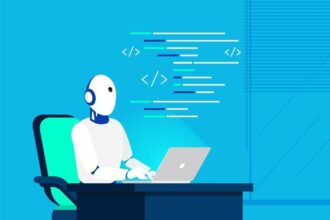 Like it or not big data is here to stay. While some businesses may have been skeptical or intimidated at the prospect of incorporating big data into their operations, the reality is that without big data analytics, a company is likely to fall behind its competitors. Businesses have responded to this by trying to implement big data solutions and analytics in their companies.
Like it or not big data is here to stay. While some businesses may have been skeptical or intimidated at the prospect of incorporating big data into their operations, the reality is that without big data analytics, a company is likely to fall behind its competitors. Businesses have responded to this by trying to implement big data solutions and analytics in their companies.
 Like it or not big data is here to stay. While some businesses may have been skeptical or intimidated at the prospect of incorporating big data into their operations, the reality is that without big data analytics, a company is likely to fall behind its competitors. Businesses have responded to this by trying to implement big data solutions and analytics in their companies. This can prove quite challenging, especially depending on the business, particularly their size, function, and structure. In an effort to use big data to improve revenue and cut down on costs, businesses are faced with a major decision–whether to engage in analytics for themselves or to hire a vendor. For those companies that choose a vendor, it becomes equally important to decide on one that uses machine learning in its analytics.
Like it or not big data is here to stay. While some businesses may have been skeptical or intimidated at the prospect of incorporating big data into their operations, the reality is that without big data analytics, a company is likely to fall behind its competitors. Businesses have responded to this by trying to implement big data solutions and analytics in their companies. This can prove quite challenging, especially depending on the business, particularly their size, function, and structure. In an effort to use big data to improve revenue and cut down on costs, businesses are faced with a major decision–whether to engage in analytics for themselves or to hire a vendor. For those companies that choose a vendor, it becomes equally important to decide on one that uses machine learning in its analytics.
While big data vendors offer many unique advantages and benefits to businesses, machine learning in particular is an important feature all companies should look for. It’s also important to understand just what machine learning is before seeking out vendors who will also tout additional features like deep learning and prescriptive analytics. Machine learning is the process by which patterns are found within multiple sources of data from multivariate statistics, data mining, and advanced analytics in order to make predictions. The benefits that come from properly utilizing machine learning are clear, from understanding and predicting a customer’s future behavior, to predicting and preventing customer churn, to detecting fraud before it becomes a problem.
Machine learning is the proper way to make use of all that big data companies are collecting and analyzing. In fact, machine learning is a far more effective way to analyze data since, unlike other methods, it is designed to work with vast amounts of different types of data that is constantly changing. Machine learning has the capability to analyze an entire set of data, not just a small portion of it, allowing for more accurate results. The very nature of machine learning also allows its analytics to operate at a faster pace.
How vendors handle their machine learning capabilities plays a large role in finding the right vendor for a particular business. For one thing, while a vendor may be skilled at implementing machine learning and using it for predictive analytics, they need to be able to offer predictive modeling tools that those within the business will find easy to use. In other words, the machine learning solutions need to be usable by people who may be unfamiliar with the specifics of big data analytics. The machine learning also needs to be able to incorporate a company’s collected big data that has been stored on-site or in the cloud, while also feeding into the business’s already existing processes. This adaptability for working with stored big data applies not just to large businesses but smaller ones as well since flash storage has become more affordable. So what is flash storage? It essentially allows for high capacity storage and high performance processing and scalability without the moving parts associated with hard disks. It has become an essential component in the ongoing adoption of big data and machine learning in the enterprise.
The complexity of machine learning and predictive analytics can also drive some businesses away from using them, but that’s why a good big data vendor will actually leverage machine learning as a way to remove that complexity. This is partly done by utilizing automation, which goes through a large set of algorithms to determine the most effective analyses that simplify the solutions to a problem faced by a business or organization. The automation makes it so the business’s big data team doesn’t have to use iterative testing to come up with the solution, which would only add to the complexity.
There are, of course, many other factors that go into choosing a big data vendor, such as how large they are, the agreements or conflicts over how to use the data, and the numerous partnering options to figure out. But one of the most important choices to make is to find one that uses machine learning. Without it, analysis of big data simply isn’t as effective, and much of that data could be misinterpreted or mishandled.
Image Source: wikimedia










